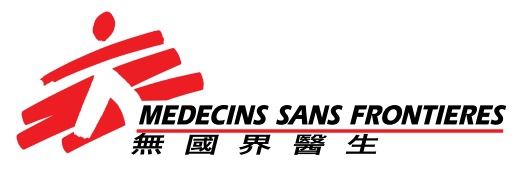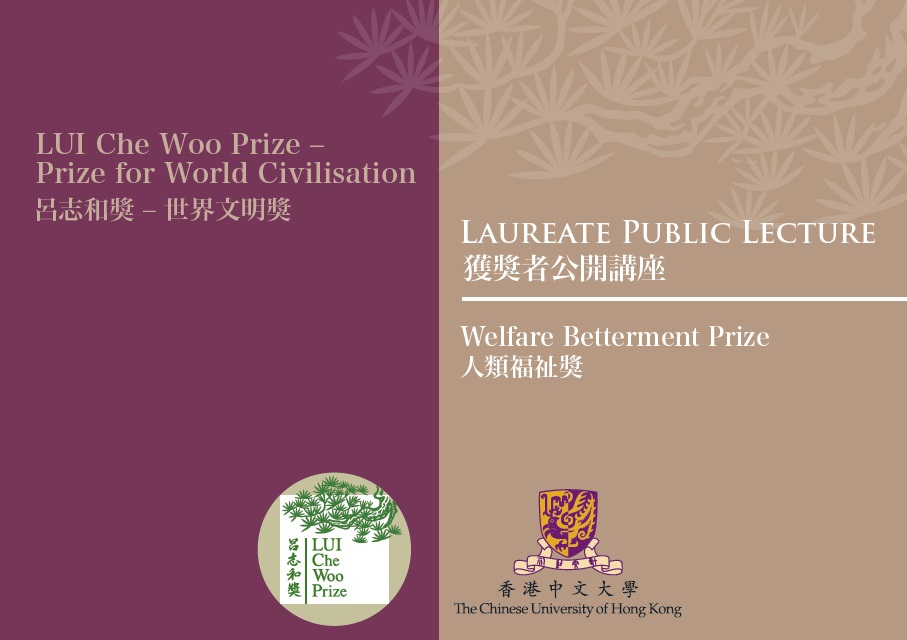Events
LUI Che Woo Prize − Prize for World Civilisation Laureate Public Lectureby Médecins Sans Frontières, LUI Che Woo Prize 2016 Welfare Betterment Prize Laureate on"From the worst Ebola epidemic to the brutal hospital attacks – the first-hand experience and perspective of Médecins Sans Frontières"
5 Oct 2016
11:00am – 12:30pm
Lecture Theatre 6, 1/F Lee Shau Kee Building, CUHKSpeakers:Mr. Rémi CarrierExecutive Director, Médecins Sans Frontières – Hong KongDr. Natasha ReyesEmergency Response Support Unit Manager, Médecins Sans Frontières – Hong KongMedical Coordinator for MSF’s Ebola intervention in Liberia in 2014
卡磊明先生無國界醫生(香港)總幹事韋達莎醫生無國界醫生(香港)緊急救援支援組經理2014年無國界醫生利比里亞伊波拉救援項目醫療統籌

Médecins Sans Frontières (MSF)
Médecins Sans Frontières (MSF) is an international, independent, medical humanitarian organisation that delivers emergency aid to people affected by armed conflict, epidemics, natural disasters and exclusion from healthcare. It offers assistance to people based on need and irrespective of race, religion, gender or political affiliation.
MSF operates programmes in more than 60 countries worldwide, providing medical care to help people survive catastrophic situation. Its work is carried out by thousands of health professionals, logistical and administrative staff, the vast majority of whom come from the countries where the organisation is providing medical assistance.
MSF’s actions are guided by medical ethics and the principles of neutrality and impartiality. It does not take sides but seek to bring assistance to those who need it most urgently. In situations of conflict, it does not accept funds from governments or other parties who are directly involved. When it witnesses serious acts of violence, neglected crises, or obstructions to its activities, MSF may speak out about this.

Mr Rémi Carrier
Executive Director, Médecins Sans Frontières – Hong Kong
Mr Rémi Carrier started his career with Médecins Sans Frontières (MSF) in 1993, working in Angola and then Afghanistan as a logistician and administrator. He continued to work as Logistics and Technical Coordinator for MSF’s projects in China and different African countries. From 1998 to 2000, he worked for the MSF Operational Centre in Brussels as the Logistics Manager, providing support for a range of field missions. In 1999, he went for the emergency relief operation in Albania responding to the refugee influx from Kosovo, and then to Turkey following the earthquake in Düzce.
From 2000 to 2005, Mr. Carrier was the Director of the Logistics Department of MSF’s Operational Centre in Brussels. He took part in the reopening of medical programmes in Afghanistan after MSF withdrawing its international staff shortly after September 11th 2001 due to increased insecurity. He also went to Banda Aceh, Indonesia for the post-tsunami emergency intervention at the end of 2004.
Having worked for a foundation for two years, Mr. Carrier worked with MSF again in 2007 as Head of Mission in Kenya and then in Thailand. He took up the post as Executive Director of MSF-Hong Kong in August 2010. Within MSF, he is also the member of Executive Committee which is the core decision-making body, and a member of Information Systems Management committee.

Natasha Reyes, MD, FPCEM
Manager, Emergency Response Support Unit, Médecins Sans Frontières – Hong Kong
Dr. Natasha Reyes has been working with MSF since 2007, and has worked as a field doctor, ER doctor, field coordinator, medical coordinator and emergency coordinator in emergency and unstable contexts. Her work has brought her to India, Kenya, South Sudan, Pakistan, Afghanistan, Libya, Philippines, Colombia, Sierra Leone, Liberia and Nepal. She has worked in varied contexts, such as outbreaks (measles, cholera, hepatitis E and Ebola), natural disasters, displaced populations and trauma care in conflict. In her most recent field missions, she was the medical coordinator for MSF’s Ebola intervention in Liberia in 2014 and Head of Mission for the Nepal Earthquake Intervention in 2015.
She is from the Philippines, where she obtained her Medical Doctorate from the University of Santo Tomas, and specialized in Emergency Medicine at the Makati Medical Center. She was inducted as a Fellow of the Philippine College of Emergency Medicine in 2007. She has participated in numerous trainings and workshops on medical emergency response and has completed the European Masters of Disaster Medicine program.
3943 8893
Founded by Dr. LUI Che Woo on 24 September 2015, the “LUI Che Woo Prize – Prize for World Civilisation” (“the LUI Che Woo Prize”) is an annual, first of its kind, international, cross-sector and innovative award for advancing world civilisation and inspiring people to build a more harmonious world.
The LUI Che Woo Prize aims to recognise and honour individuals or organisations all over the world with outstanding achievements and contributions in respect of the following three objectives:
- Sustainable development of the world (Sustainability Prize)
- Betterment of the welfare of mankind (Welfare Betterment Prize)
- Promotion of positive life attitude and enhancement of positive energy (Positive Energy Prize)
For the first Prize in 2016, Médecins Sans Frontières (MSF) is awarded the Welfare Betterment Prize for its indispensable contributions to the treatment and control of the cholera outbreak in Haiti in 2010 and the Ebola epidemic in West Africa in 2014. MSF provides medical and humanitarian support to areas of disaster, epidemic or armed conflict. The work of MSF has thus resulted in a significant betterment of the welfare of mankind.
The Laureate Public Lecture will discuss the challenges in the response to these two situations from the frontline perspective of MSF.
For more information on the LUI Che Woo Prize, visit www.luiprize.org
The recent Ebola outbreak in West Africa is the worst one in history, causing over 11,000 deaths. The weaknesses in global response, as well as the fear and suspicion of an unknown virus, mistrust in politicians and foreigners, and a weak public health system in the affected countries, all contributed to the virus’s surge. MSF, as one of the few organisations working on the forefront of the outbreak, was stretched to its limits.
Not long after the outbreak subsided, the organisation faced a brutal attack on its trauma centre in Afghanistan, constituting one of the single largest losses of life in the 44-year history of MSF. Bombing and shelling attacks on medical facilities also took place across conflict-ridden countries like Syria, Yemen, and Sudan. The disrespect of medical facilities and international humanitarian law has made MSF’s response in conflict areas more challenging than ever.
The lecture will be conducted in English




